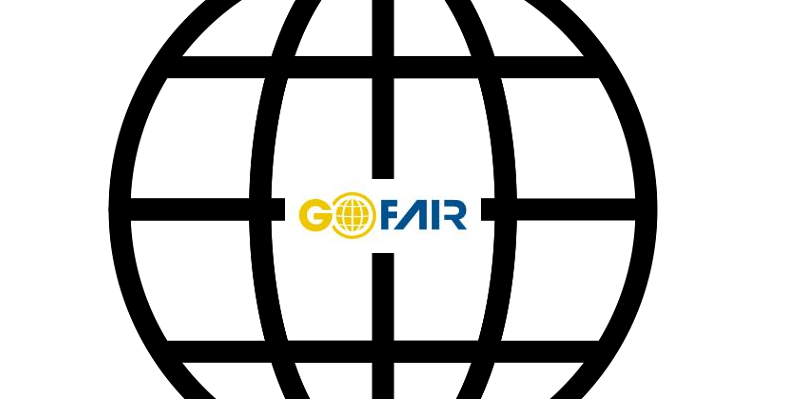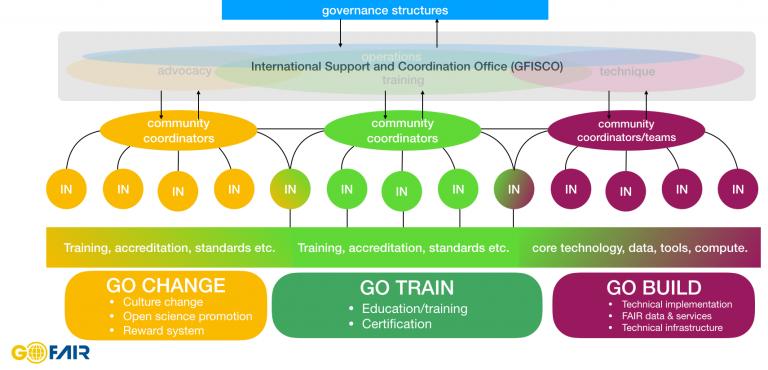Science ouverte : la France rejoint GO FAIR en tant que co-fondatrice

26 décembre 201731 août 2018
Vision
The global Internet of FAIR Data & Services (IFDS) provides a common environment for data-driven research and innovation around the world.
Mission
The GO FAIR Initiative will contribute to and coordinate the coherent development of the Internet of FAIR Data & Services through community-led initiatives in different activity streams:
- Support for the creation and running of GO FAIR Implementation Networks
- Ensure optimal coordination between existing initiatives that target the development and implementation of components of the Internet of FAIR Data & Services.
- Advocate for and support choices compliant with the FAIR guiding principles.
- Focus on early developments in the European Open Science Cloud (EOSC) with a global perspective.
Strategy

GO FAIR will enable an early phase in which we work by ‘federating the gems’. Crucial activities can commence with motivated early movers already organised in Implementation Networks without any delay, while adaptations can be made as seen fit by the coordinating networks. At any time, new Implementation Networks can be added and as such, the GO FAIR consortium is entirely open, inclusive and stakeholder driven.
The GO FAIR implementation network strategy is based on three interactive processes:
socio-cultural change programme involving relevant stakeholders at all levels relevant for the flourishing of Open Science (GO CHANGE),
training the required data stewards capable of designing and implementing proper data stewardship plans including FAIR data and services (GO TRAIN),
designing and building of the technical standards, best practices and infrastructure components needed to create the IFDS (GO BUILD).
National and networked international efforts related to the IFDS should ideally not be fragmented as they were in the past, but rather follow a congruent and self-coordinated approach. The EOSC Workshop with Member State representatives of 29 June 2016 for instance, and the more recent EOSC summit clearly identified the need for additional, subsidiary activity and mandate at the international level, in order both to prevent further fragmentation and initiate active defragmentation of existing assets and activities in Member States, as well as at the level policy influence, accreditation, rules of engagement, protocols, and standards.
Faithful to the ‘hourglass approach‘ underpinning the succes of the current internet, it is critical that within each of the three pillars in GO FAIR and within each participating country or organisation, optimal ‘freedom to operate’ must be safeguarded, with just enough coordination and international guidance to prevent silo formation and undue competition and fragmentation.

